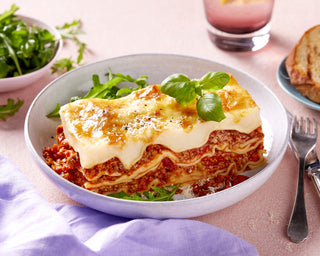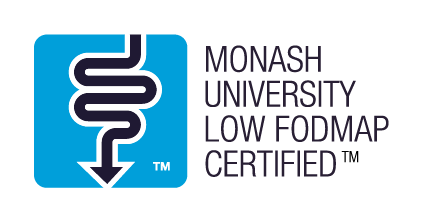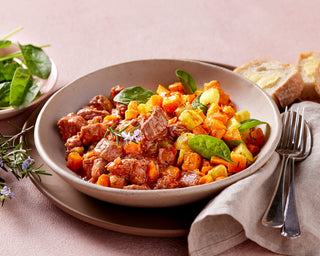Our Dietitian Answers Your Biggest Protein Questions
Protein is a crucial part of our diets and is made up of tiny building blocks called amino acids. There are twenty types of amino acids, and while your body is clever enough to produce eleven of them, the remaining nine have to come from your plate. These "essential" amino acids are non-negotiable if you want to stay healthy and thriving.
Why all the fuss about protein? For starters, it’s essential for building and repairing cells, whether that’s for muscle growth, stronger bones, or healthier skin and hair. Protein doesn’t stop at maintenance and growth - it also plays a role in digestion, transporting oxygen through your blood, and keeping you energised. Plus, protein is the most satisfying macronutrient, triggering hormones that make you feel full, which is why a protein-rich breakfast is a great start to the day!
How Much Protein Do You Need?
Your protein needs depend on factors like age, sex, and activity level. For a sedentary adult, the daily recommendation is around 0.75 grams per kilogram of body weight. On the other end of the spectrum, elite athletes may need up to 2.4 grams per kilogram to fuel their performance and reach goals.
If your goal is to build muscle, research suggests 1.6 to 2.2 grams per kilogram of body weight per day. For example, if you weigh 75kg, you’re looking at 120-165g of protein daily.
Timing Matters
Sure, you can cram all your protein into one massive dinner followed by a protein bar, but science says there’s a smarter way. Spreading your protein intake evenly across your meals - say 20-30g per meal maximises muscle protein synthesis and keeps you feeling satisfied throughout the day.
What About Types of Protein?
Remember those nine essential amino acids? Animal-based foods like meat, dairy, and eggs have all of them, making them “complete proteins.” Plant-based options, like tofu, edamame, lentils, and chickpeas are fantastic too, but most are “incomplete proteins.” Don’t worry, though; by combining different plant proteins (think rice and beans or peanut butter on wholegrain toast), you can still get all nine amino acids.
For our vegan and vegetarian friends, protein supplements like soy protein- a complete plant-based protein- can be a game-changer for convenience and variety.
Don’t Forget the Other Macronutrients
Protein may get the spotlight, but carbohydrates and fats are just as important in a balanced diet. Carbs are your body’s primary energy source, fuelling everything from your morning walk to your brainpower at work, while also improving mood and sleep. Whole grains, fruits (like bananas and mangoes), and even humble potatoes are all excellent choices. Fibre, a type of carbohydrate, deserves a special mention for its role in digestion and blood sugar regulation. Think wholegrain bread, oats, and fruits to keep things moving smoothly.
Fats are essential for absorbing fat-soluble vitamins (A, D, E, and K), supporting cell function, and providing energy. Healthy sources include avocados, nuts, seeds, and fatty fish, like salmon.
Protein is an essential part of a healthy diet, but it’s not just about hitting a daily target. The quality, timing, and balance of your protein intake can make all the difference in achieving your health goals. Pair it with nutrient-dense carbs and healthy fats for a well-rounded diet that fuels your body, satisfies your appetite, and keeps you performing at your best.
Sophie Kane,
Dietitian
Got a question for our Dietitian? Send us an email to team@dineamic.com.au and we might pick it for a future blog.









